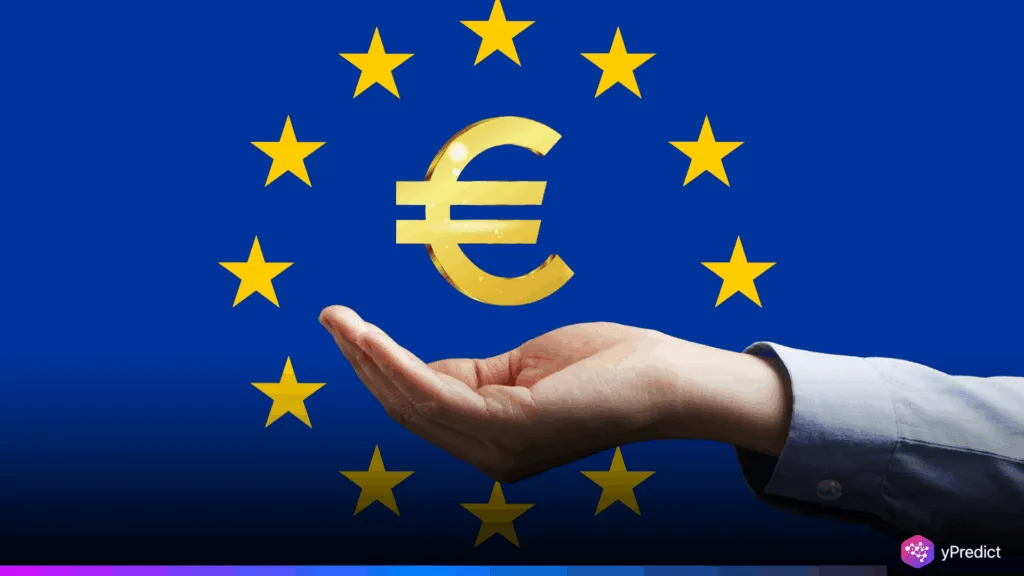
We are currently witnessing a rapid shift in how people pay, and this transition is redefining the economies of Europe. As more people continue to shift to online shopping and develop preferences for card payments, it is becoming increasingly important to find digital payment solutions that provide privacy, accessibility and sovereignty. The European Central Bank (ECB) recognizes a growing need within society to be able to provide digital payment options in response to changes in people’s payment loyalty, and they are rising to meet that need with their plans for a digital euro.
The digital euro will not replace cash, but will provide a complement to cash and serve as a sovereign and universal payment mechanism for both digital and cash purchases. It will allow European citizens to access secure, reliable and no-cost payments while minimizing Europe’s reliance on non-European payment providers, which is critical to the EU’s drive for strategic autonomy for its financial services.
Why Payments Must Evolve With the Digital Economy
With the shifts toward digital spending in Slovenia and Europe, in general, the need for payment solutions that are reliable, secure and sovereign has increased. In Slovenia, only 64% of in-person payments were made with cash in 2024, and card payments had increased to 29%, which demonstrates a digital shift. Online shopping in the euro area accounts for now over a third of average daily retail transactions.
Despite this shift, Europe lacks a universal digital payment method that is sovereign, inclusive, and widely accepted. The ECB sees this as a gap that the digital euro could fill. Without such a solution, Europe remains at risk of relying heavily on private, non-European providers that charge high fees and operate under foreign policies.
Key Challenges in the Current European Payment Ecosystem
Dependency on Non-European Providers
Two-thirds of card transactions in the euro area are handled by international players. Thirteen euro area countries fully depend on non-European systems. This raises serious concerns about strategic autonomy and resilience, especially in politically sensitive times.
Fragmented Market Across the Euro Area
European banks have failed to unify payment systems. National solutions like Slovenia’s Flik have potential but lack reach. Fragmentation prevents innovation, limits competition and leads to higher costs. For instance, EU merchants spend €3 billion annually just to process international debit cards.
Poor User Experience and Limited Acceptance
People must juggle multiple apps and cards, while merchants face limited access to inclusive and affordable digital systems. Local schemes, like Karanta in Slovenia, hold only 0.2% market share. Without a unified system, even promising tools remain stuck in a low-acceptance loop.
How the Digital Euro Solves These Problems
Restoring Sovereignty in Digital Payments
The digital euro will offer a pan-European solution accepted across the euro area. It will guarantee access to central bank money for all kinds of transactions – in shops, online, or peer-to-peer – just like cash but digital. It will reduce Europe’s reliance on foreign systems and give citizens and businesses freedom and trust in how they pay.
Boosting Competition and Reducing Merchant Fees
The digital euro will use open standards and shared infrastructure, helping local solutions like Flik grow beyond national borders. It will level the playing field, forcing dominant providers to lower costs and improve services. SMEs will especially benefit from fairer transaction fees and better access to payment innovation.
Empowering Banks and Payment Providers
Banks will keep their client relationships and benefit from the digital euro infrastructure. Instead of losing ground to stablecoins or global fintech firms, European providers can innovate on a solid, sovereign foundation. They will be able to scale their offerings faster and across borders, thanks to the digital euro’s Europe-wide acceptance.
Delivering a Seamless Experience With Privacy Built In
The ECB plans to offer online and offline functionality for the digital euro. Offline use will mimic cash privacy – only the payer and payee will know the details. The online system will include features like conditional payments – for instance, automatic refunds if a flight is delayed.
The digital euro will cover all use cases in one solution: in-store, online, and person-to-person. The system is being built with APIs to support future innovations. Over 70 banks, fintechs, and merchants – including those from Slovenia – are actively exploring these features with the ECB.
A New Era for European Payments
The digital euro is not just a currency upgrade; it is a policy response to preserve Europe’s financial independence. It will ensure that every citizen can make secure and efficient payments using sovereign money, no matter where or how they pay.
By complementing cash and strengthening European payment systems, the digital euro will enhance accessibility, foster innovation and restore balance in the market. It will also allow Europe to remain in control of its monetary future while ensuring fair competition and lower costs for users.






